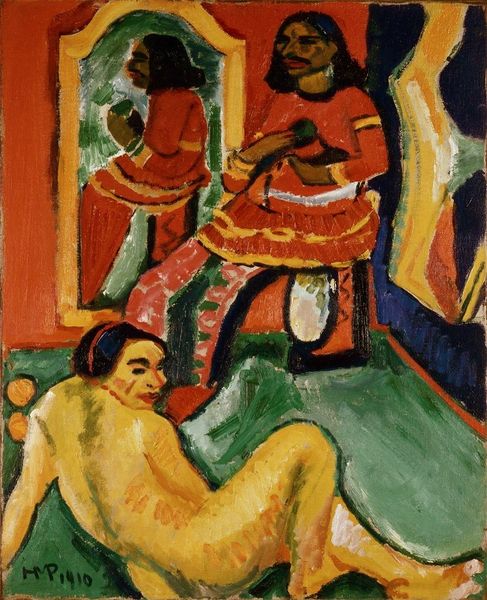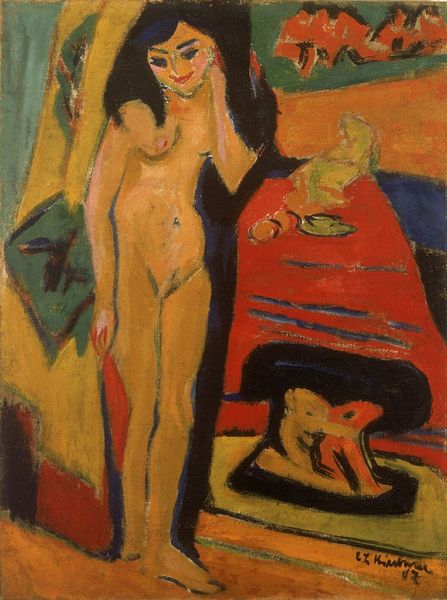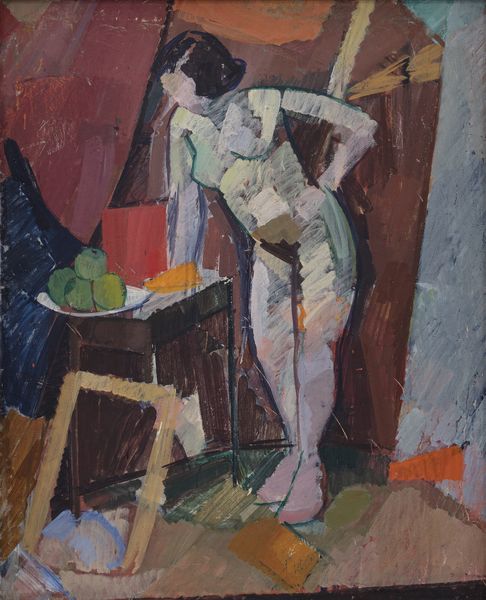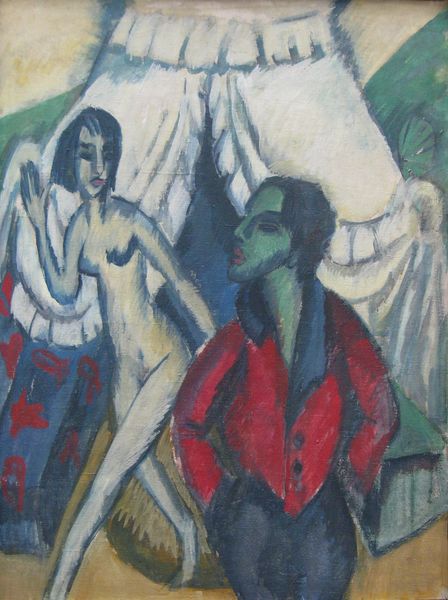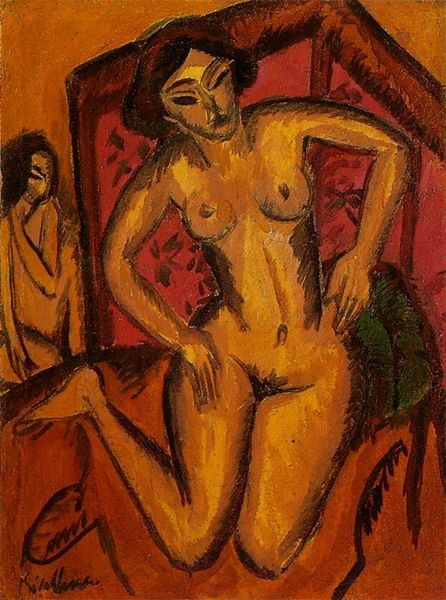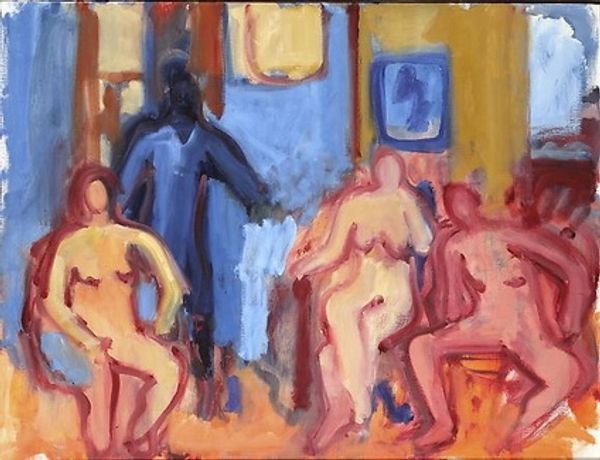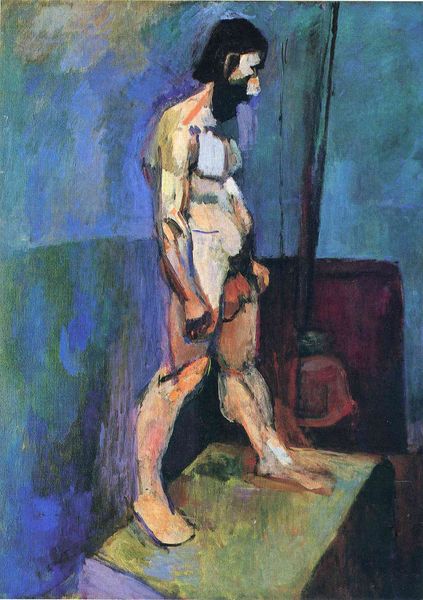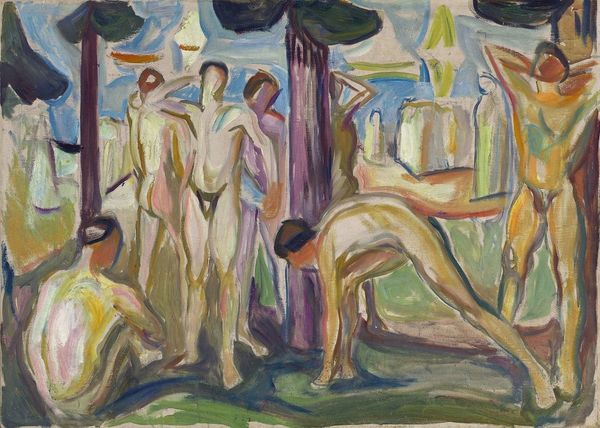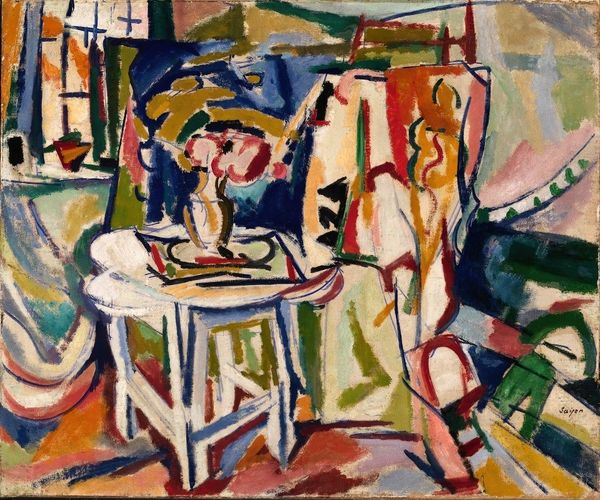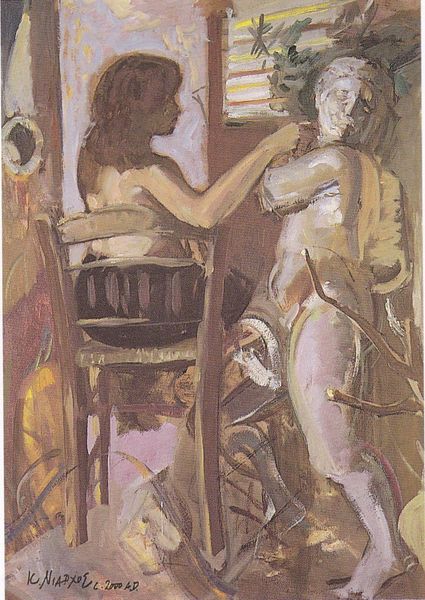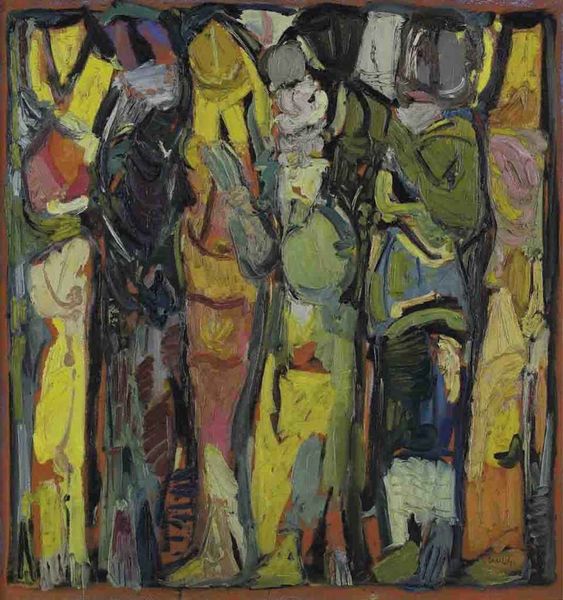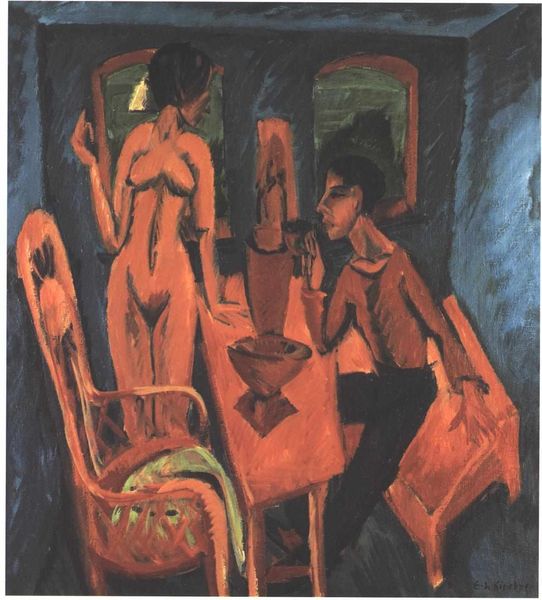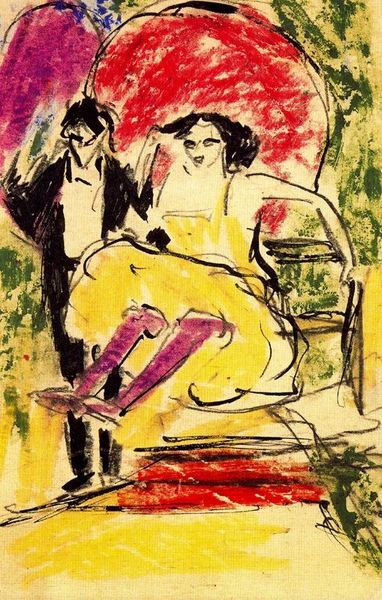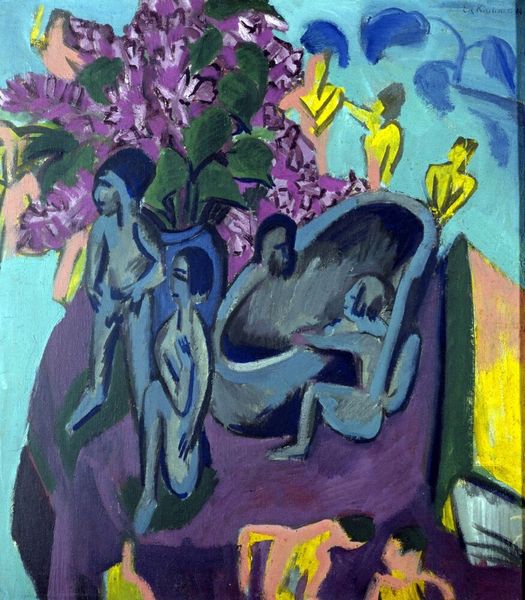
oil-paint
#
portrait
#
figurative
#
oil-paint
#
german-expressionism
#
figuration
#
oil painting
#
expressionism
#
genre-painting
#
nude
#
erotic-art
Copyright: Public Domain: Artvee
Editor: This is Ernst Ludwig Kirchner's "Nudes in Studio," painted in 1912 with oil on canvas. It strikes me as quite bold and raw, not conventionally beautiful. What do you see in this piece? Curator: It is raw, isn't it? Like a glimpse into a world vibrating with uneasy energy. Kirchner's expressionism often throws beauty out the window in favor of truth, or at least, *his* truth. It reminds me of sneaking into an abandoned theatre and seeing actors preparing. What do you notice about the colors? Editor: They're definitely jarring! Lots of clashing reds and blues... it’s not harmonious at all. Curator: Precisely. This discord reflects the anxieties brewing in pre-war Germany. Kirchner and the Die Brücke artists were rebelling against academic traditions, seeking a more authentic representation of modern experience – and I can't help thinking, "Was this work ever truly *finished*? Editor: Anxious, yes. Almost as if it were left unfinished. Does the style reflect any historical or societal shift from that period? Curator: Absolutely. There was a growing sense of unease and alienation. This translated into jagged lines, distorted figures, and intense colors, as if they’re ripping open the polite facade of society to reveal the primal emotions beneath. Imagine the stuffy salons of the time – this painting would have been a scandal! Editor: It is! So it's less about idealizing beauty and more about capturing… truth? Curator: Or perhaps a truth. It's Kirchner's deeply personal interpretation. To me, it's a visceral cry against complacency. It’s confrontational – were all our interpretations right? It doesn't settle neatly. Editor: Thanks, that makes perfect sense, especially seeing it as his emotional reaction to the moment. That certainly adds another layer to appreciating what Kirchner was trying to convey. Curator: Right? Each time, for each viewer, the work continues to morph, and yet its origin never disappears. A magic mirror.
Comments
No comments
Be the first to comment and join the conversation on the ultimate creative platform.
